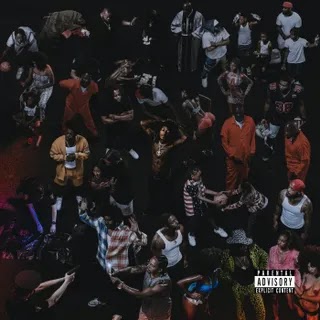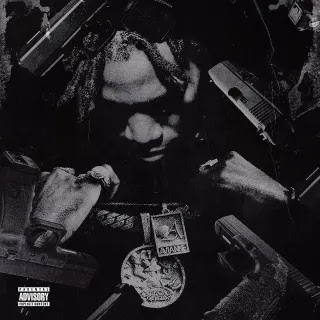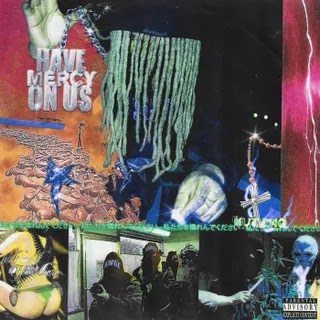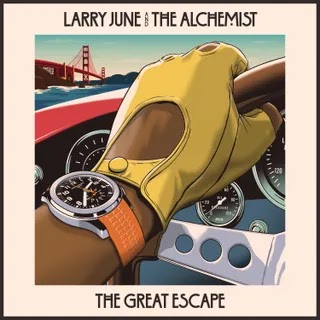The Atlanta rapper’s latest LP is an ambitious and overwhelming experience, a bridge between his upbringing and his place within hip-hop canon and Black history at large.
JID has always been deceptively difficult to pin down; the Atlanta spitter’s reputation as a capital-L Lyricist with a Gatling gun flow often overshadows the rubbery and referential shapes his music takes. Pass him a beat like the slinky “D/vision” and he’ll stagger-step his way around drums while dropping James Harden and Teenage Mutant Ninja Turtles references; give him room to vamp over the string licks and bubbly snaps of Spillage Village’s “Ea’alah (Family)” and he’ll coo about family barbecues and endless summer violence like a long-lost Dungeon Family affiliate.
On “Raydar,” the second track on his new album The Forever Story, JID explicitly calls attention to his range for the first time in his career: “I got the shit you could play for your mama/I got the shit you could play for the hoes/I got the shit you could sell to the trappers/In Decatur with the ’K and the Colt.” It’s been nearly four years since JID’s last solo project, 2018’s DiCaprio 2, and five since his 2017 breakout The Never Story; the time away has him aching to display tricks old and new. There are verses performed in multiple voices; there are heartfelt ballads; he flexes, digs further into his family history, and shares scattered thoughts on the modern Black experience over songs with multiple beat changes. Forever is an ambitious and overwhelming album, a sprawling and sometimes frustrating bridge between JID’s upbringing and his place within hip-hop canon and Black history at large.
That’s a lot to cover in any context, but it isn’t his first time piecing this together. Forever is a literal and thematic sequel to The Never Story, providing what JID recently described to Complex as “a good piece of [my] origin story.” He’s spoken about his family before, but never with the verve he brings to a story about him and his six siblings fighting a small army outside a New Orleans bar on “Crack Sandwich,” or a dissection of the way his success strains his relationship with one of his sisters on “Sistanem.” Like The Never Story, some tracks are bookended with recordings of family and friends that range from candid conversations to demands for him to drop the album. The scope of the project makes it easy to occasionally lose the plot, but the raps and production are strong enough to draw focus away from its awkward sequencing.
When it comes to pure performance, JID’s voice has rarely been more elastic. He uses the same half-step flow at different BPMs on “Can’t Punk Me” and “Stars,” burrowing through both beats to create exciting vocal pockets in their shuffling beats. He’s also singing more, and his light melodies make for good hooks (“Dance Now,” “Bruddanem”) and full-throated balladry on the heartrending “Kody Blu 31.” One big difference from past records is the number of sly musical references baked into songs. Some are fairly overt—JID mentions looking up to JAY-Z, Kanye West, and Lil Wayne on “Stars”—but others are fainter to the naked ear. “Raydar” begins with a short sample from the Last Poets’ “Mean Machine” that contrasts JID’s war-ready posturing throughout the song. Michael Jackson’s infamous scatting hook from “Wanna Be Startin’ Somethin’” is interpolated on “Dance Now”; the “mommies, daughters, martyrs, callers” hook from “Sistanem” bears a striking resemblance to the opening of OutKast’s “Rosa Parks.”
By creating a new trail using the breadcrumbs of the past, JID and his producers are doing what many of the greats do best. And the beats across Forever are almost uniformly impressive, as executive producer Christo and a handful of others offer up a variety pack of slappers and pretty orchestral arrangements. “Surround Sound” flips the same Aretha Franklin sample used on Yasiin Bey’s “Ms. Fat Booty” with harder drums that pulse like subwoofers in a trunk. Nervy footwork-inspired beats from Kaytranada (“Can’t Punk Me”) share space with melancholic live-band instrumentation from Canadian jazz outfit BADBADNOTGOOD (“Stars”) and Justus League member Khrysis (“Money”).
Forever’s maximalism creates some unfortunate bloat. Third verses whiff about as often as they land; songs like “Surround Sound” and “Can’t Make U Change” turn into endurance tests when their switch-ups don’t justify their length. This also extends to the album’s guest list. Most of the guests slot themselves in nicely, particularly fellow Dreamvillites EarthGang on “Can’t Punk Me” and an in-form Lil Wayne on “Just in Time.” But Lil Durk’s choppy melodies don’t belong over the string arrangement on “Bruddanem,” and the decision to put Yasiin Bey’s otherwise solid verse over a staid beat on the back half of “Stars” instead of the beautiful flutes and clap drums on the front half was a mistake.
Much of this excess clearly stems from JID feeling he has something to prove after four years away. The skits poking fun at impatient fans and his quips about song leaks don’t fully conceal that Forever is JID’s attempt to be a hip-hop ringmaster playing every role in the circus. Even so, his expanded ambition is impressive. JID remains a talented and engaging presence who’s becoming better and better at exposing his heart for anyone willing to touch it.
















0 comments:
Post a Comment